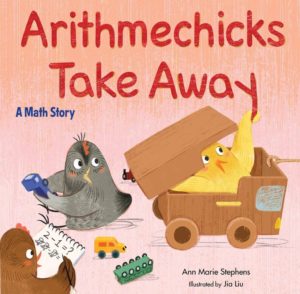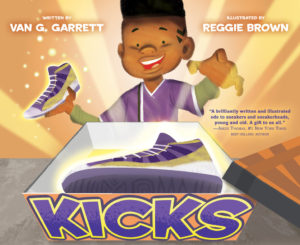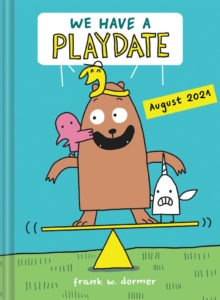 After working as an Associate Agent and intern at several literary agencies, Jacqui Lipton founded Raven Quill Literary Agency in 2019 and, in 2022, the agency merged with The Tobias Literary Agency where Jacqui continues to focus on developing the careers of unique, high quality, engaging, and often underrepresented voices. She represents a little bit of everything from children’s books through the adult market in both fiction and nonfiction.
After working as an Associate Agent and intern at several literary agencies, Jacqui Lipton founded Raven Quill Literary Agency in 2019 and, in 2022, the agency merged with The Tobias Literary Agency where Jacqui continues to focus on developing the careers of unique, high quality, engaging, and often underrepresented voices. She represents a little bit of everything from children’s books through the adult market in both fiction and nonfiction.
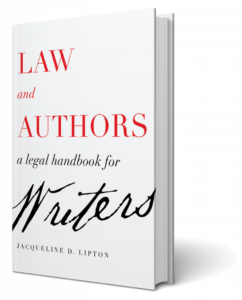 In addition to holding an MFA in Writing for Children & Young Adults from Vermont College of Fine Arts, Jacqui is a law professor and attorney with American and international experience in commercial and intellectual property law. She writes columns on legal issues for writers for the SCBWI Bulletin, Luna Station Quarterly, Catapult Community Page, and Savvy Authors, and she’s a frequent presenter on these issues around the country. She’s also the author of Law and Authors: A Legal Handbook for Writers (University of California Press, 2020).
In addition to holding an MFA in Writing for Children & Young Adults from Vermont College of Fine Arts, Jacqui is a law professor and attorney with American and international experience in commercial and intellectual property law. She writes columns on legal issues for writers for the SCBWI Bulletin, Luna Station Quarterly, Catapult Community Page, and Savvy Authors, and she’s a frequent presenter on these issues around the country. She’s also the author of Law and Authors: A Legal Handbook for Writers (University of California Press, 2020).
Jacqui focuses on representing authors of picture books, novels, novels-in-verse, and nonfiction from middle grade through to the adult market.
Now that we’ve got a sense of what Jacqui is bringing to the OPB table, let’s get to the interview!
RVC: Which came first—the interest in writing/publishing or the interest in law?
JL: I’d have to say I was writing LONG before I was thinking of going to law school. I was always an avid reader from a very young age and started writing bad poetry in elementary school, moved on to short stories in high school, and soon tried short novels and scripts. A major attraction of the law for me involved the narratives relating to legal disputes—different ways the same facts can be perceived and relayed by different parties–and the very human stories the law often deals with.
RVC: Way back when, what were you reading, and what influence did those books have on you?
JL: I started out with mysteries when I was young—I loved books that included puzzles to solve. I still love a good mystery or suspense story. I tend to like relatively fast-paced stories that contain surprises along the way, but now I also enjoy slower paced, thoughtful literary pieces with beautiful writing craft.
RVC: You’ve got a connection to Australia. Care to explain how you went to university there?
JL: I actually grew up in Australia and moved to the States later in life, so I still have an Aussie accent and did most of my schooling in Australia. I went to the UK for my Ph.D., and also now hold that good old MFA in writing from Vermont College of Fine Arts.
RVC: Since you literally wrote the book on legal issues for writers, let me ask—why do writers need to know about the law? Isn’t it something their agent just handles for them?
JL: Well, to start with, not all writers work with agents or literary lawyers, so it’s worth understanding the basics of the contract you’re entering into! And honestly the main through-line of the book is that it’s not necessary for authors to know a lot about the law, and that the law should never stand in the way of writing what you want to write because there’s usually a workaround for common legal problems that arise, many of which I discuss in the book.
 So, the idea of the book is to explain in simple terms, with accessible pop culture examples, the basics of things like what a copyright is, the key terms authors will see in contracts with agents and with publishers (and the key differences between those contracts) and how defamation, privacy and trademark law can come into play in the writing life. The content of the book is really drawn from lots of questions authors have asked me over the years and my attempts to answer them in simple, accessible terms.
So, the idea of the book is to explain in simple terms, with accessible pop culture examples, the basics of things like what a copyright is, the key terms authors will see in contracts with agents and with publishers (and the key differences between those contracts) and how defamation, privacy and trademark law can come into play in the writing life. The content of the book is really drawn from lots of questions authors have asked me over the years and my attempts to answer them in simple, accessible terms.
RVC: Simple and accessible sounds wonderful.
JL: There are other books out there that go into, say, publishing contracts in a lot more detail than my book. Mine is really intended as an entry point to give authors a heads up on the key legal issues they might face in their careers, and importantly, which issues can be easily handled without legal help, which may need legal help, and where to go to find effective and hopefully affordable legal help. It also has chapters focusing on self-publishing where agents/lawyers are less likely to be consulted. The book won’t make anyone into a lawyer, but hopefully it will give authors comfort about the scary-seeming questions that often get raised and inaccurately addressed in a a lot of writing groups (online and IRL)!
RVC: I teach Introduction to the Profession of Creative Writing and The Profession of Creative Writing at my college, and something we talk about in those classes that shocks young writers is copyright and IP (intellectual property). They often don’t have any idea of the rights they’re surrendering for free by posting things on social media, for example.
JL: That was a big reason I wrote the book—just to give authors some accessible and accurate knowledge about things like their intellectual property rights. And posting stuff on social media usually isn’t “giving away” rights in your work, but it may be infringing rights in other people’s work! It’s important to understand the difference between protecting your own rights and respecting other people’s rights—and I hope the book addresses some of those distinctions.
RVC: Gotcha–thanks for clarifying that! Now, you work as a legal consultant for writers and creative artists. What’s the most frequently asked question you get?
JL: Definitely questions about including other people’s work (e.g. song lyrics, lines of poetry, photographs) in your own work—and the extent to which that infringes copyright. A lot of people think that giving attribution to the original creator avoids a copyright infringement problem and it really doesn’t because copyright isn’t about attribution—it’s about copying. Attributing the original creator is always nice, but it’s not a copyright issue. If the original creator gives you permission to use their work and asks for attribution in return, that’s a contract (it’s a contractual license to use their work with attribution).
The other common question is about defamation—say, someone is writing a memoir and want to know what they can “get away with” writing about real people in their lives without being at risk for a defamation suit. Luckily for authors, defamation is a pretty weak law in the United States as compared with other countries. Truth does tend to be a defense and statements of opinion, rather than fact, are typically not defamatory.
RVC: How did you go from being a lawyer to being a literary agent?
JL: I actually still do a bit of both (or at least a bit of contract consulting here and there). I also mainly teach law rather than practice. I’ve always been more of a teacher than a lawyer, which, I think, is part of the reason I wrote the book. The teacher in me just won’t stop! So, I tend to do a bit of everything but my main focus is a combination of teaching and agenting.
RVC: What’s something most people wouldn’t appreciate about being an agent?
JL: How much paperwork there is in terms of contracts, payments, just day to day emails. I think a lot of people have a kind of glamorous conceptions of agents on the phone doing big deals for books that become instant bestsellers. A lot of it is actually admin work behind a computer. I also think people assume agents make a lot more money than they do, a lot more quickly than they do over the span of a career. An agent only gets a commission on projects they sell, and, even then, it’s usually typically around 15% and most book deals aren’t six-figure deals. So, you do the math! And bear in mind that unless you own your own agency, that 15% is split between the agent and the agency, so many agents only earn between 7.5 to 12% of the deals they do, depending on their arrangements with their agencies.
RVC: You’re a writer, too. How does your own writing inform your agenting?
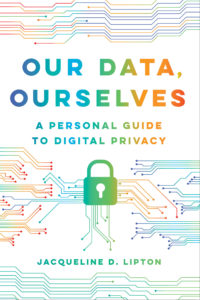 JL: I’m not sure that it really does. I tend not to write in areas where I actively agent because I have trouble turning off my editor brain in the genres I work on for clients, which tends to interfere with my ability to write creatively myself in those genres. So, at the moment I write mainly prescriptive nonfiction for adults (the legal issues book and a forthcoming data privacy handbook—Our Data, Ourselves: A Personal Guide to Digital Privacy, coming out this fall with University of California Press). I tend to rep nonfiction more in the kidlit space and more narrative nonfiction than I write. And I don’t really write much in the way of fiction.
JL: I’m not sure that it really does. I tend not to write in areas where I actively agent because I have trouble turning off my editor brain in the genres I work on for clients, which tends to interfere with my ability to write creatively myself in those genres. So, at the moment I write mainly prescriptive nonfiction for adults (the legal issues book and a forthcoming data privacy handbook—Our Data, Ourselves: A Personal Guide to Digital Privacy, coming out this fall with University of California Press). I tend to rep nonfiction more in the kidlit space and more narrative nonfiction than I write. And I don’t really write much in the way of fiction.
Never say never, but once my editor brain is switched on for a particular genre, I find it hard to switch off.
RVC: What made you take the potentially scary dive into launching your own agency?
JL: It was something that felt right at the time because I had trained for a while and I had the legal/business background to do it. It also enabled me to call the shots and develop the business the way I wanted to develop it—with a wonderful team of agents and clients. I think it paid off in the sense that we gave a lot of newer agents and clients a wonderful start in the business and then, with the recent Tobias merger, we were able to quickly draw on the strengths and synergies between the two agencies to provide clients a deeper level of service and more opportunities more quickly than if we had continued on our own.
RVC: In all your experience with Raven Quill, what surprised you the most?
JL: We did manage to make a lot of deals very quickly, or at least more quickly than I guessed we would, particularly as we had newer agents and a lot of newer clients on deck. We were probably helped a bit by the pandemic because we didn’t have brick and mortar premises to deal with at a time when lots of people were trying to renegotiate leases, and we didn’t have a lot of existing contracts with pub dates being postponed due to school and bookstore closings, supply chain issues, etc. I guess I was also surprised by the amount of faith clients and editors placed in us so quickly and so graciously.
RVC: Let’s talk about picture books specifically. What are some of the picture books you’ve repped that are indicative of your tastes, both as an agent and for your agency?
JL: It’s so weird to think of myself as a picture book agent because it was one area I never specifically trained in, but I did end up selling a number of them. My picture book tastes are pretty eclectic and my list is currently pretty full in that regard so I’m more likely to look at a picture book author who also writes in other segments of the market at the moment.
One of my absolute favorite picture books (coming out in 2023 with Sleeping Bear Press) is Stephanie Gibeault’s Toby Tootles, illustrated by Mary Sullivan, because I was so delighted to actually sell a fart book! But what I love about the book is that it’s really a book about self-acceptance that uses flatulence in a humorous way to get the message across.

I have to also give a shout out to Tziporah Cohen for two of her picture books, On the Corner of Chocolate Avenue: How Milton Hershey Brought Milk Chocolate to America, illustrated by the amazing Steven Salerno, and coming out this fall with Clarion, and Afikomen, coming out in spring 2023 with Groundwood (illustrated by Yaara Eshet). I love the Hershey bio because it’s about the way Hershey struggled to create a sweet treat accessible to the masses, and not just for the wealthy. And I LOVE Afikomen because it’s a wordless time travel portal fantasy about Passover. Writing the pitch for it was a lot of fun as you can imagine.
RVC: I’ll bet!
JL: Two of my clients have absolutely amazing picture books coming out on the Heartdrum list at HarperCollins, one about community with a particular shout out to people who identify as “two spirit” (Circle of Love by Monique Gray Smith, illustrated by Nicole Neidhardt) and another about a young girl coming of age and learning about how to make a ribbon skirt with her grandmother (Stitches of Tradition or Gashkigwaaso Tradition) by Marcie Rendon, illustrated by Joshua Mangeshig Pawis-Steckley.
Another one that I’m particularly excited about is Molly Golden’s debut nonfiction picture book, Becoming Real: The True Story of the Velveteen Rabbit, illustrated by Paola Escobar, forthcoming with Clarion (big shout out to Jennifer Greene for her editorial vision). While it’s a picture book biography, it’s really a story about using creativity to overcome grief and it was a perfect book to work on during the pandemic.
RVC: Sounds quite timely.
JL: I hate calling out particular client projects because I’ll always end up leaving someone out but hopefully this list shows you that when I do rep picture books, the actual genres within PB that I rep are pretty broad (although I definitely have a soft spot for nonfiction), but what I’m looking for is a meaningful theme at the heart of the piece. For example, I don’t want to see a biography that simply chronicles someone’s life. I want to see a story about hope or grief or love that uses the biography format (or whatever other format) as the vehicle to investigate that theme.
RVC: Something I’ve found to be true is that most agents get a ton of pretty good manuscripts. What helps a story stand out from a bunch of others that are totally solid and have a lot going for them but ultimately won’t make the cut?
JL: That’s a tough one to answer! The short answer is probably “narrative voice” but it’s really difficult to define what that means. When I end up passing on perfectly good projects that don’t have that special “it” factor, I usually write the author a note saying “I wasn’t drawn organically into the story through the characters and their voices; I felt like I could see the author’s hand telling me what was going on.” What I mean by that is there’s a difference between a character who just leaps off the page and into your heart and a character who is interesting, but interesting in the same way as a lot of other characters. I wish I could be more specific. And it’s also subjective, so a character that doesn’t speak to me on that level may well speak to other agents and editors. That’s why it’s almost impossible to define “voice” in a way that’s meaningful to writers! Each agent/editor “knows it when they see it” and we’re all looking for slightly different nuances.
RVC: What’s your personal feeling on Art Notes from authors?
JL: I think they’re fine as long as they’re not overdone. Some pieces require more art notes than others to clarify what’s happening in the text. As long as the author isn’t being overly prescriptive and not giving any room for the illustrator to shine, or, conversely, the author isn’t leaving too much of the narrative to the illustrator because the author, say, doesn’t really know how the story ends (!), I think, with practice, it’s usually relatively clear where and when illustrator notes should be included.
Agents should be able to help with this, too. I’m often discussing adding illustrator notes (or removing them) with client work, so there’s no “perfect” amount of illustrator notes to include when querying agents, and an agent who likes your work should be able to discuss including or deleting illustrator notes. Same with backmatter and other supplemental information.
RVC: What DON’T you want to see in terms of picture book submissions?
JL: I’m being very selective about picture book submissions at the moment because my list is pretty full on that front and pretty strong already. I’m not the best fit for anthropomorphized animal characters–or dragons. Actually, I’m probably not the best fit for any prince/fairy/dragon pieces!
RVC: What’s a favorite client picture book success story?
JL: I have one that I can’t talk about because it hasn’t been announced yet so ask me next time!
RVC: Consider us tantalized regardless! Now, what’s a favorite you CAN share?
JL: I really loved selling a beautiful picture book, Rising by award-winning Canadian literary fiction author, Sidura Ludwig, which is being illustrated by Sophia Vincent-Guy and published by Candlewick. Sidura is such a beautiful lyrical writer and the manuscript was so quiet and heartfelt, simply chronicling a day making Challah between a mother and daughter, but of course it was about so much more. It resonated with themes of family and community across countries and generations. It ended up being a competitive bidding situation between editors who really understood the message and felt passionately about it. At the end of the day, Mary Lee Donovan ended up editing it and she is an absolute dream for this piece. Jewish stories that aren’t about a particular religious holiday or the holocaust have been few and far between, so a simple family Challah-baking story felt in some ways a tough nut to crack in the market, and I was so glad we found an editor—in fact more than one—who really had the most amazing vision for the piece.
RVC: That’s the secret–finding an editor with the right vision for a story. Awesome.
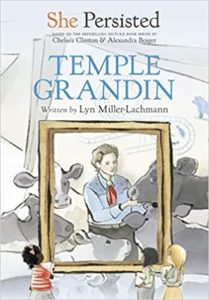 JL: I know you only asked for one story but I was also super-excited about the sale of Lyn Miller-Lachmann’s debut picture book, Ways to Play, illustrated by Gabriel Alborozo to Levine Querido. Lyn had always wanted to write a picture book and now calls herself a “triple threat” as a result of spanning the PB, MG and YA markets (and she’s also now written a chapter book as well—the Temple Grandin volume in the She Persisted series—so maybe she’s a quadruple threat). Ways to Play will be such a beautiful book dealing with children on the spectrum being called out for not playing with toys the same way as other kids; both Lyn and Gabriel are on the spectrum and it’s the perfect partnership for this piece.
JL: I know you only asked for one story but I was also super-excited about the sale of Lyn Miller-Lachmann’s debut picture book, Ways to Play, illustrated by Gabriel Alborozo to Levine Querido. Lyn had always wanted to write a picture book and now calls herself a “triple threat” as a result of spanning the PB, MG and YA markets (and she’s also now written a chapter book as well—the Temple Grandin volume in the She Persisted series—so maybe she’s a quadruple threat). Ways to Play will be such a beautiful book dealing with children on the spectrum being called out for not playing with toys the same way as other kids; both Lyn and Gabriel are on the spectrum and it’s the perfect partnership for this piece.
RVC: Last question for this part of the interview. What would you like to brag about in terms of forthcoming client work? And/or your own writing?
JL: All of it! Seriously, I can’t pick a project. I’m fortunate and so, so grateful that my clients have put their trust in me and shared their amazing creative work with me and supported me as the agency grew and changed and ultimately merged with the team at Tobias. If I have a brag at all, it’s that I think the market is going to see our clients’ work go from strength to strength in coming years and I can’t wait to see what the future brings for all of us.
RVC: Alrighty, Jacqui. It’s now time for the Lightning Round. Zippy questions and zappy answers, please. Are you ready?
JL: Uh, didn’t you notice the length of my previous answers?? I don’t think I can do this! HELP!!!
RVC: Favorite Crayola color (real or invented)?
JL: Memory Lane Indigo.
RVC: What always cheers you up when you think about it?
JL: My kids’ smiles.
RVC: What do you think you’re much better at than you actually are?
JL: Critiquing plays and musicals!
RVC: Guilty reading pleasure?
JL: ROMANCE!!!!
RVC: What’s the One That Got Away?
JL: Ooh, that’s a tough one. I probably can’t name her because she’s working with another agent and happily selling books I wished I’d had the opportunity to rep. (She knows who she is!!! Or does she???)
RVC: In five words or less, your picture book philosophy.
JL: Write with heart. Rinse. Repeat.
RVC: Thanks so much, Jacqui!
JL: Thanks for having me!


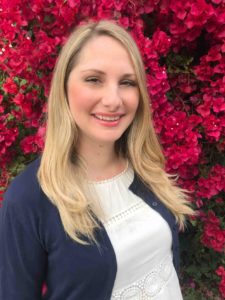 Natalie Lakosil is an agent at the Irene Goodman Literary Agency. An honors graduate of the
Natalie Lakosil is an agent at the Irene Goodman Literary Agency. An honors graduate of the 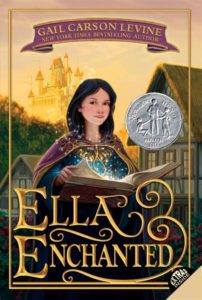
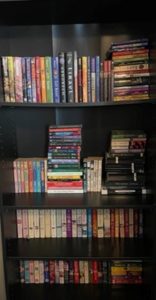 glimpse at that shelf.
glimpse at that shelf.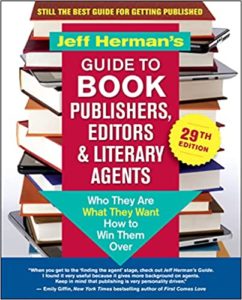
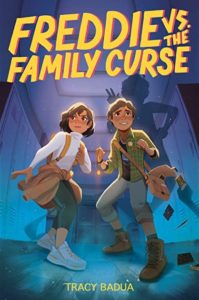
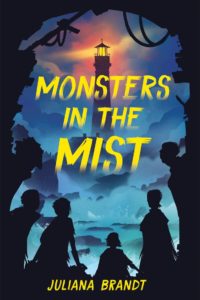
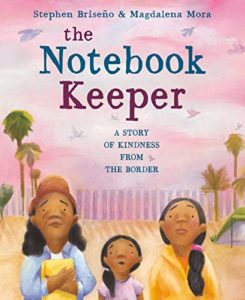
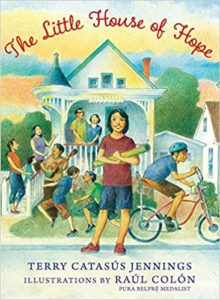

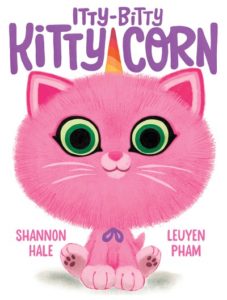
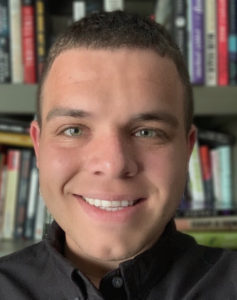 The February 2022 Industry Insider Interview at
The February 2022 Industry Insider Interview at 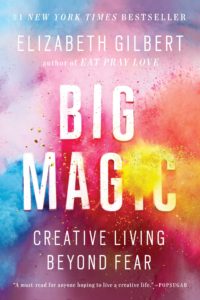
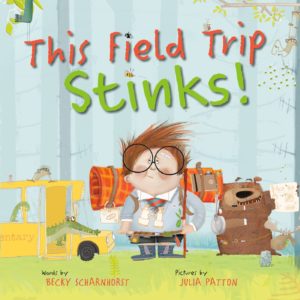
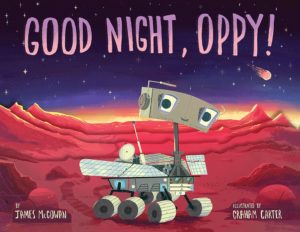
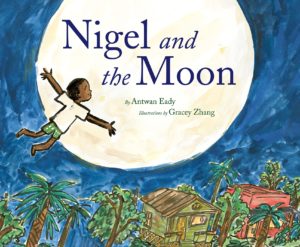
 Joshua Walls is a children’s author and travel writer who isn’t afraid to fuse, challenge, or deconstruct genres in the pursuit of creating compelling stories. Currently, he lives in Sarasota,
Joshua Walls is a children’s author and travel writer who isn’t afraid to fuse, challenge, or deconstruct genres in the pursuit of creating compelling stories. Currently, he lives in Sarasota,  This month’s Industry Insider interview is with Saba Sulaiman, a literary agent at Talcott Notch Literary Services. While I could put all kinds of traditional bio things here, I’m going to instead offer part of her own terrific Twitter bio. “Eternally recovering from maternity leave. Probably hiding behind the crib, eating cake.” With an awesome Twitter bio like that, what more do you need to know?
This month’s Industry Insider interview is with Saba Sulaiman, a literary agent at Talcott Notch Literary Services. While I could put all kinds of traditional bio things here, I’m going to instead offer part of her own terrific Twitter bio. “Eternally recovering from maternity leave. Probably hiding behind the crib, eating cake.” With an awesome Twitter bio like that, what more do you need to know?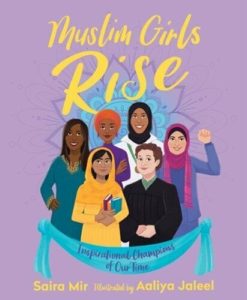
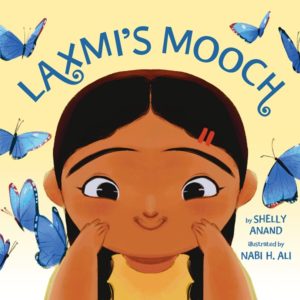
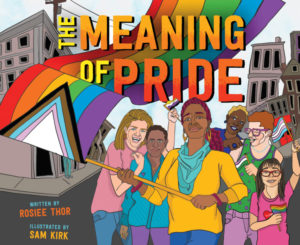
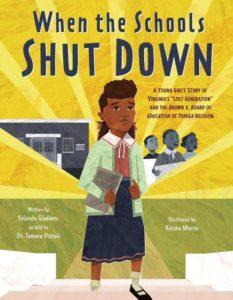
 This month’s Industry Insider interview is with Elizabeth Bennett, a Senior Literary Agent and Partner at Transatlantic Agency. She’s spent her entire career in the children’s publishing industry, having worked in marketing, product development, and editorial at such companies as Scholastic, Reader’s Digest, and Houghton Mifflin Harcourt. One especially cool thing she did at
This month’s Industry Insider interview is with Elizabeth Bennett, a Senior Literary Agent and Partner at Transatlantic Agency. She’s spent her entire career in the children’s publishing industry, having worked in marketing, product development, and editorial at such companies as Scholastic, Reader’s Digest, and Houghton Mifflin Harcourt. One especially cool thing she did at 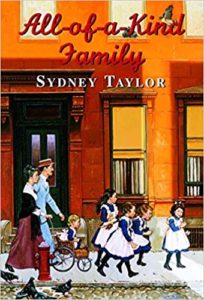
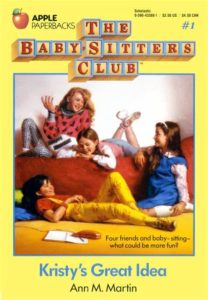
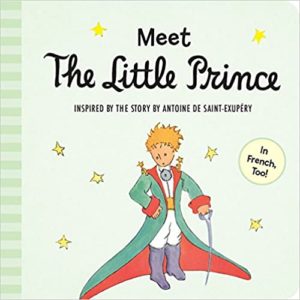
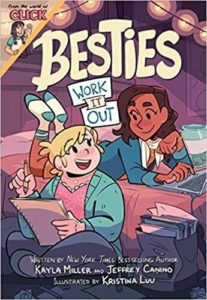
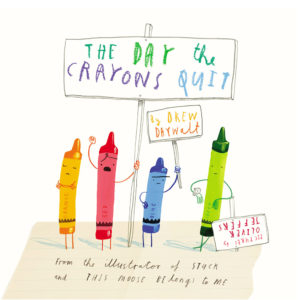
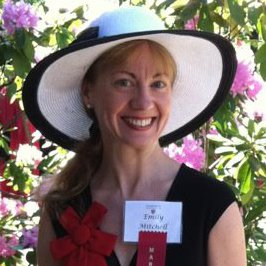 This month’s Industry Insider Interview is with Emily Mitchell, an agent at
This month’s Industry Insider Interview is with Emily Mitchell, an agent at 
